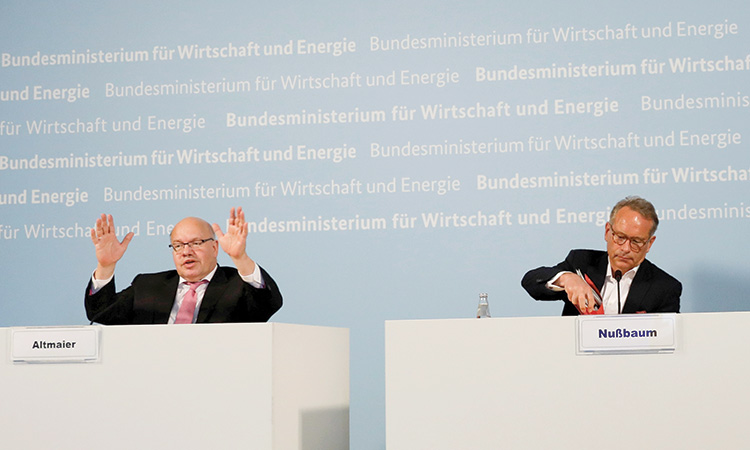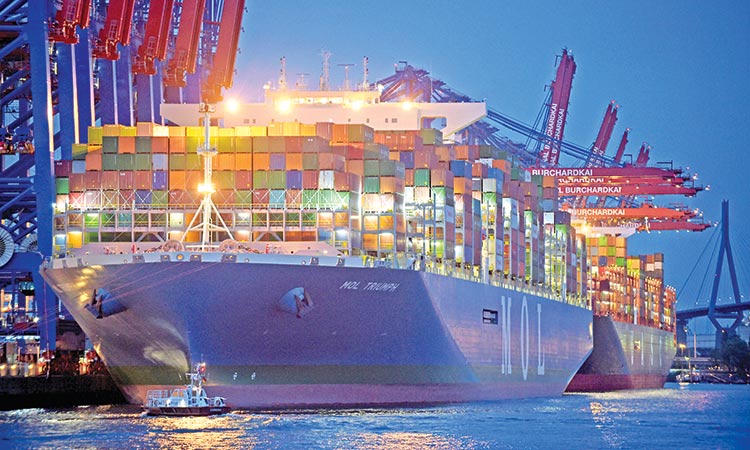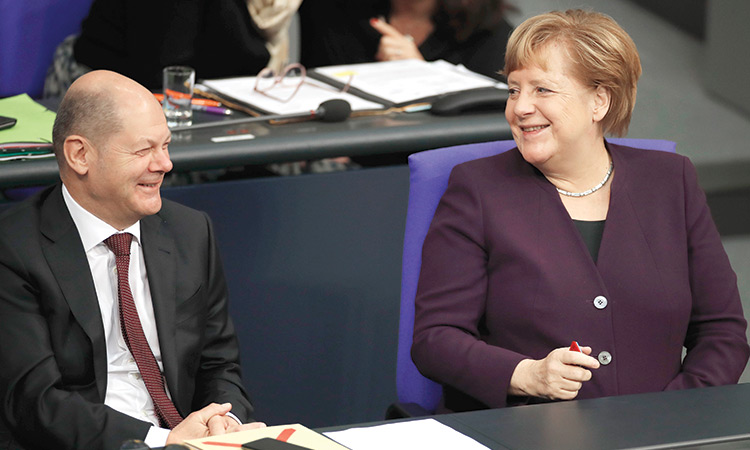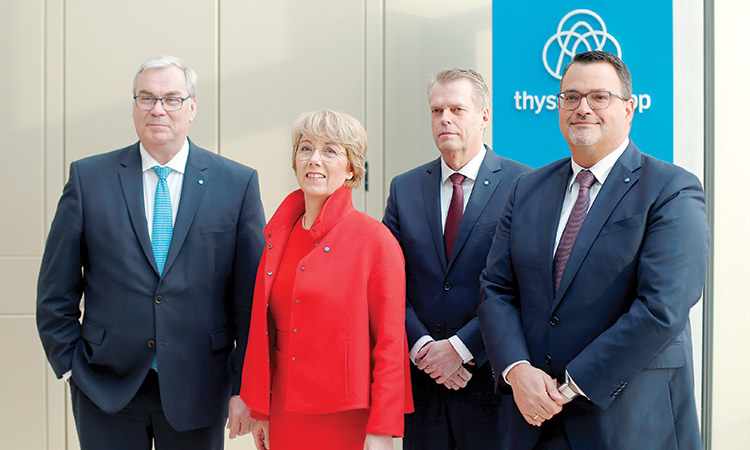German economy to contract more sharply in Q2 than in Q1

German Economy Minister Peter Altmaier and state secretary at the economic ministry Ulrich Nussbaum during a news conference in Berlin on Monday. Reuters
Europe’s largest economy went into lockdown in March, with many firms halting production and shops closing. It is now facing its worst recession since World War Two after the economy contracted by 2.2 per cent in the first quarter.
“The economic recovery phase will take time because the epidemiological risks persist and citizens and companies react to them,” the ministry said in its monthly report.
But the ministry said it looked like the trough had been passed and added that a gradual relaxation of the lockdown means the economic revival likely started from May.
The ministry said German foreign trade was likely to revive from May after exports and imports in April posted their biggest declines since records began in 1990.
But it predicted a significant decline in exports and imports for 2020 as whole.
The German government has stuck to the growth forecast it gave in April for a 6.3 per cent contraction this year but many economic institutes have made more pessimistic predictions. The government’s planned 130 billion euro ($146.29 billion) stimulus programme could boost economic output in Europe’s largest economy by 1.3 percentage points both this year and next, the DIW institute said last week.
Meanwhile the Germany will take a stake in unlisted biotech firm CureVac, which is working on a COVID-19 vaccine, Economy Minister Peter Altmaier said on Monday, confirming an earlier Reuters report.
Altmaier said the German government would acquire a 23 per cent stake in the company for 300 million euros ($337.4 million).
The move followed reported attempts by the US government to acquire CureVac or its assets in March, which stirred a backlash in Berlin, with Altmaier and the interior minister voicing support for keeping CureVac German.
CureVac main shareholder Dietmar Hopp and Acting CEO Franz-Werner came on a meeting on a screen during a news conference with German Economy Minister Peter Altmaier and state secretary at the economic ministry Ulrich Nussbaum, at the economy ministry in Berlin on Monday. Altmaier said that the government wanted to strengthen the life sciences and biotech sectors in Germany and that Berlin would not have any influence over CureVac’s business strategy.
“The German Federal government has decided to invest in this promising company because it expects that this will accelerate development programmes and provide the means for CureVac to harness the full potential of its technology,” he told a new conference.
Reuters reported about the German plan to take a stake in CureVac earlier on Monday.
Reflecting the sensitivity about ownership of the country’s two coronavirus vaccine developers - CureVac and BioNTech - Berlin in May gave itself new powers to veto hostile foreign takeover bids for healthcare companies.
Germany’s new borrowing will rise to 218 billion euros this year, Chancellor Angela Merkel’s chief budget lawmaker told Bild newspaper on Monday as Berlin is working on a record stimulus package to counter the impact of the coronavirus pandemic.
The comments by Eckhardt Rehberg followed a Reuters report from last Wednesday in which a senior official said that Germany’s overall new borrowing would probably balloon beyond 200 billion euros this year.
The plan to take on more debt underlines Germany’s massive fiscal shift from Europe’s former austerity champion to one of the biggest spenders in the eurozone’s efforts to counter the economic impact of the coronavirus pandemic.
“With the supplementary budget coming now, there will be around 218 billion euros ($245.23 billion) more debt this year, of which we will have to repay 162 billion starting from 2023 according to the Constitution,” Rehberg said.
The finance ministry is preparing a debt settlement plan for a time period of 20 years, whereby Berlin will have to repay roughly 8 billion euros per year, Rehberg added.
Finance Minister Olaf Scholz is on Wednesday expected to present Berlin’s second supplementary budget within three months, adding 62 billion euros of additional debt to the 156 billion euros of new borrowing already agreed in March.
Germany is planning to use the debt to finance stimulus measures worth more than 130 billion euros to help its economy and the wider eurozone to recover more quickly from the coronavirus pandemic.
Reuters







